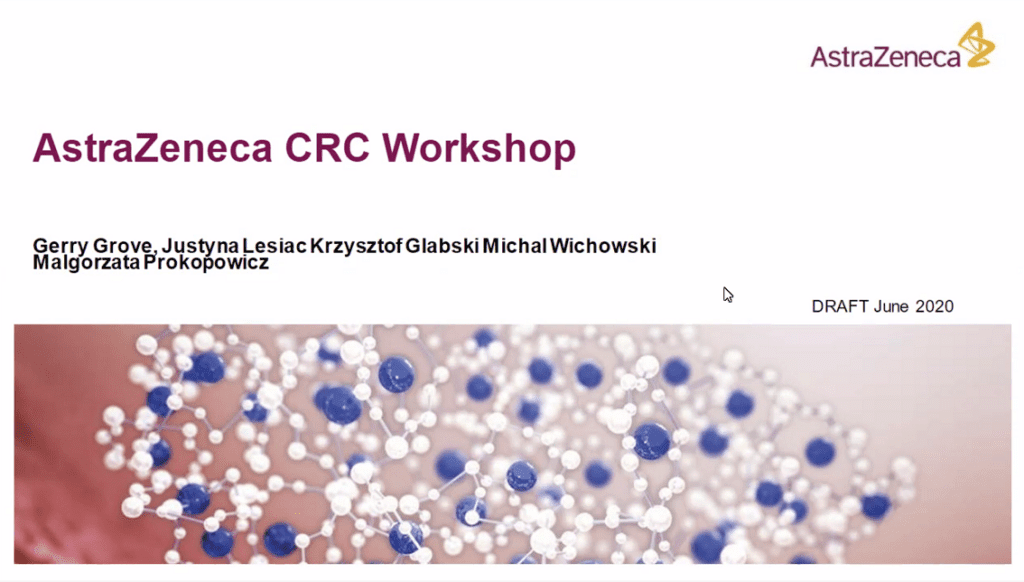Cambridge Regional College Applied Science and Forensics Students Explore Clinical Trials with the Experts

As distance learning continues at Cambridge Regional College (@CRC_College) students studying level 3 Applied Science and level 3 Forensics & Criminal Investigation were invited to attend a video presentation with Dr Grove and her Warsaw based team at the global biopharmaceuticals company, @AstraZeneca
This unique opportunity gave the learners the freedom to explore science in the real-world, the extensive process of clinical trials, cost and time implications of bringing medicines to the market and how unexpected situations, such as the COVID-19 pandemic, can move the trials to priority status as the world searches for a vaccine.
The presentation and subsequent discussion highlighted the complexities of clinical trials such as the need to identify disease/ condition and any underlying disease to ensure that a treatment is appropriate for a given patient. In addition the group discussed the need for highly controlled environments to monitor how safe and effective a treatment is and the identification of adverse reactions to make sure a drug is well tolerated for use. With an ultimate goal of the potential to cure or prevent disease, the process of trials is an ongoing endeavour to identify and improve treatments across a wide range of conditions. Naturally the topic on everyone’s mind right now is, how do you work on something like COVID-19?
The students were talked through the changes being implemented to reduce the standard timeline of a clinical trial, through the elimination of natural gaps between stages and how manufacturing is taking place ‘at risk’ in anticipation of a positive result, ie: the drugs are produced in advance of the results which is not standard practice, particularly as there several trials taking place at once. There is however, the risk that the results will be negative which means going back to the drawing board. In preparation for the presentation, students were asked to put forward questions to further their learning of the topic:
Year 1 Criminal Investigation and Forensics student, Aimee Dover asked,
”I understand from your website that you are making significant progress into respiratory disease research. As an asthma sufferer myself, please can you give details of the type of treatment I might receive in the future and are you confident that this research could cure asthma?”
Dr Grove explained that the word ‘cure’ does not simply refer to a condition being completely eliminated as this is an unknown entity. Cure is more often associated with an acceptable period time to be without symptoms or the effects of a condition, such as the remission period in the case of cancers. Clinical trials are continually pushing the boundaries to reduce symptoms and the likelihood of recurrence to develop ‘cures’ for some of biggest and most life-threatening illnesses that we currently face.
Year 2 Applied Science student Philip Bousfield,
”How do you quantify the effectiveness of a drug during each stage of a trial to decide that it can be moved into the next stage in the process?”
Dr Grove responded, ”All clinical trials take place in highly controlled environments and it is only through consistent evaluation of safety effectiveness and monitoring patient reactions that the potential treatment can be moved into the next phase and ultimately we hope that a drug can be brought to market.”
Biology lecturer, Julie Webb added,
“I’m really impressed by the quality of the questions the students asked as it showed they had done their homework beforehand. The event was a great opportunity for the students to interact with this important employer in the Cambridgeshire region.”
AstraZeneca is a Swedish-British biopharmaceuticals company that was founded in 1957. The company headquarters are situated in Cambridge and there are currently five main operations within the UK and many more globally. AstraZeneca run an established apprenticeship programme and the students were shown the full range of opportunities available to anyone considering a future in the science and research industry.











Responses